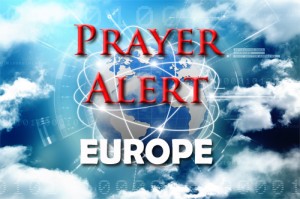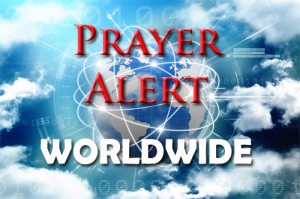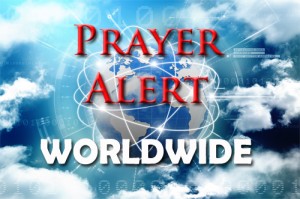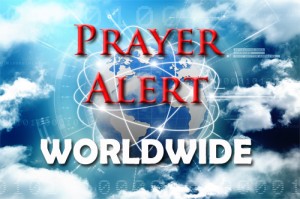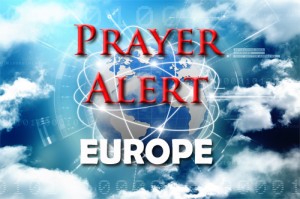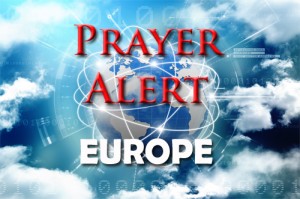Displaying items by tag: Russia
Easter in Russia
Easter is celebrated later because the Russian Orthodox church uses the old Julian calendar. On Holy Saturday churches hold night services and organise religious processions around churches. By that time, kulich, the traditional holiday baking symbolising the body of Christ, has already been baked and Easter eggs painted. The morning starts with visiting neighbours and giving Easter eggs. The common phrase on that day is, Khristos voskres! (Christ is risen!), followed by Voistinu voskres (Truly he is risen!) followed by the kiss of peace (triple kissing). Easter is the day of abundant food after the ‘Great Lent.’ A Russian tradition is to deliver gifts to poor families, distant relatives, orphanages, hospitals, prisons and beggars. They say that from Easter to the Ascension Christ, with the Apostles, travels the earth testing everyone for mercy and kindnesses.
Syria: Chemical attack followed by USA retaliation
Fifty-eight people have died and dozens have suffered in a chemical attack in Syria. Assad denied using any such weapons. Putin insisted Russia was not in the vicinity. Observers in Syria point the finger at it being a Syrian strike. Syria first used chemicals in 2013. It prompted purposeful discussion that came to nothing. Tuesday’s attack provoked President Trump to react within 48 hours - a major shift in America’s foreign policy. On Thursday night the USA launched 59 Tomahawk cruise missiles at the Syrian airbase where the warplanes that carried out the chemical attacks were based. The UK knew in advance of the airstrike but was not involved. Russia knew in advance and were seen moving vehicles out of the area. They are calling the strike a violation of international law. Since the USA gave Russia and the UK warnings that a strike would happen and where it would happen, it was not a surprise military action. Whether it will be interpreted as an outright military act or a political strike, we should indeed pray into this fluid and tense situation.
Russia: St Petersburg bomber was from Kyrgyzstan
The safety of the Russian people depends upon President Putin’s response to the St Petersburg attack. If the President rounds up more Chechen activists or pounds what’s left of Syria’s cities, then he will only provoke another murderous attack on a train. Russia’s involvement in Syria’s war is one motive, the long-running conflict in Chechnya another. Whichever group may have been responsible, or whichever terror organisation inspired some lone individual, the response of Russia, many believe, is likely to be one of further repression and an appeal to nationalist sentiment. This has been the Putin way for as long as he has exercised power in his land. Pray that this event would not bring another twist to the cycle of violence in the region.
Russia: a divided people
On 8 March celebrations began for the centenary of the Russian revolution; they will continue for one year. Revolution brought education to those at the bottom of the social pile, while destroying the middle class. Conflicting rich v poor views continue today. Last Sunday Alexei Navalny, an anti-corruption and opposition activist, called on his supporters to protest, and accused prime minister Dmitry Medvedev of personal enrichment through embezzlement. The biggest rally of 8,000 people in Moscow was unsanctioned, and 600 were detained. 3,000 demonstrated in St Petersburg (131 detained), 500 in Vladivostok (25 detained), 1,500 in Novosibirsk, and others elsewhere. Many believe that Russia and democracy are incompatible, and that 2017 will reunite Russians to a legacy of revolutions that continues to divide. See http://www.independent.co.uk/voices/russian-revolutions-1917-centenary-celebrations-2017-vladimir-putin-bolsheviks-lenin-stalin-trotsky-a7605791.html
Russia denies breaking treaty after alleged missile deployment
Russia has denied violating a Cold War missiles treaty, following accusations by unnamed officials in President Trump's administration that Russia had deployed a banned cruise missile. A Kremlin spokesperson said on Wednesday that Russia continued to uphold its international commitments. The US state department has made no official comment. The alleged deployment was discussed during Wednesday's Nato meeting in Brussels, the first since President Trump took office. Nato Secretary General Jens Stoltenberg said that any non-compliance from Russia on the arms control treaty would be a ‘serious concern for the alliance’. A New York Times report said that the Russians now have two battalions of the prohibited missiles. Republican senator John McCain responded to the situation by calling on the Trump administration to enhance US nuclear deterrents in Europe. He said Russian president Vladimir Putin was ‘testing’ Mr Trump.
Lithuania: preparing for potential Russian invasion
Lithuania has been investing in defence, introducing conscription, and rebuilding a standing army in preparation for the worst. It may have started well before the prospect of a Donald Trump presidency, but has now become a matter of urgency, with the country preparing to erect a six-foot razor-wired fence between them and Russia. The country fears Russian aggression, two years after Putin invaded Ukraine and annexed Crimea. With a US president who has sowed doubt in the country's NATO commitments, Lithuanians are concerned that they could see an echoing of the events of January 1991 when, in the course of three days, the Soviet Union tried to take back control of the country just one year after it declared independence. Meanwhile, across the border, President Putin has reinforced the garrison and sent missiles capable of carrying nuclear warheads. In response, Lithuania will build its fence. In 2002, President George Bush said: "Anyone who would choose Lithuania as an enemy has also made an enemy of the United States of America," but Lithuanians are unsure if that will remain true after Donald Trump. See also: http://prayercast.com/lithuania.html
